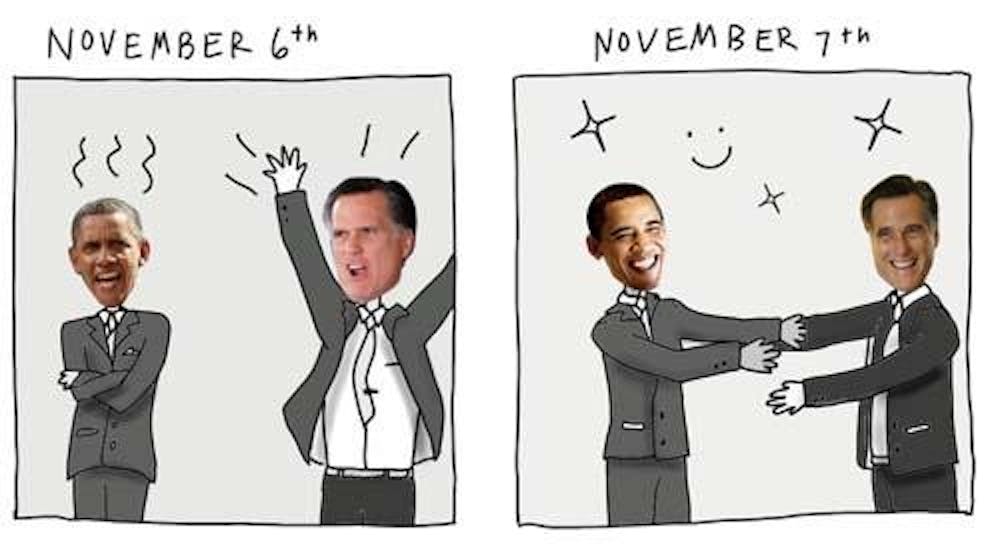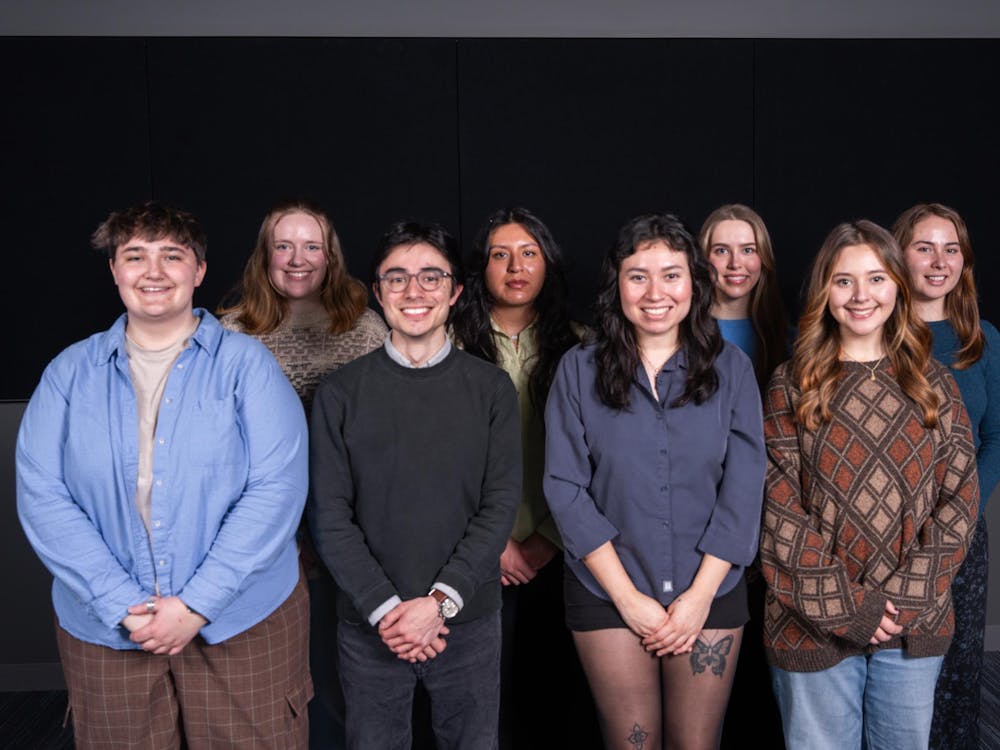(Ann Truong | The Beacon)
By
At last the 2012 election is over. The ads, canned speeches and personal attacks-for now at least-are over. In the wake of the most expensive and slamming election in history, the nation needs to move forward with bipartisanship.
The strict party lines that divide our nation serve no purpose after the election.
Both Mitt Romney's conciliatory speech and Obama's victory speech upheld the need for bipartisanship into the next presidential term. Obama's speech might be better described as a mid-year State of the Union address as he emphasized the need of the nation to reach across the aisle, even to recent rivals: "In the weeks ahead, I also look forward to sitting down with Governor Romney to talk about where we can work together to move this country forward," the President said.
Romney also highlighted the need for unity following an at times slimy election: "We can't risk partisan bickering and political posturing. Our leaders have to reach across the aisle to do the people's work," Romney said.
Obama and Congress should take a lesson out of a college student's book when it comes to bipartisanship. Students are well versed in sharing ways. We share living space in dorms, class notes for midterms and lukewarm pasta from Tupperware. Friendship and collaboration help us make it through the day and succeed in a high-stress environment. If politicians could remember that members of the "opposing" party are part of the same team maybe we would see meaningful reform.
Bipartisanship used to be the norm. "Log-rolling," to use an 1840s term, was the mark of a great politician, not a weak one. Unfortunately, adherence to the party dogma has replaced ingenuity in Washington.
New ideas that come from cooperation are what we need most. With a debt crisis, economic recovery (we hope), war and the looming specter of climate change on the horizon, politicians need cross-party leadership to agree on how to proceed.
Congress remains divided, and without compromise and sharing ideas, government cannot act. It remains to be seen if either party will make that hesitant first gesture across the aisle, but hopefully politicians can return to the days of Henry Clay and compromise.
One of the unintended consequences of a stagnant Congress is a jaded citizenry. People unplug from politics when they know their voice is not heard. However, one demographic appears to have a renewed interest in politics. Young voters, ages 18-25 increased their voter turnout from 2008 to 2012 and played a critical role in Obama's reelection.
If there is any lasting lesson from this election, it is continued civil engagement. Whether it is simply keeping up on current affairs, sending letters to elected officials or getting involved in a cause, hopefully the election has piqued the next generation's interest in our political system.
In light of all this enthusiasm, it would be a shame for Congress and the President to continue a trend of partisan fighting. Our nation is running out of time to deal with a mounting list of problems, and we can only hope that Obama's second term will usher in an age of bipartisan cooperation.
Editorial Policy The editorial reflects the majority view of The Beacon Editorial Board. The editorial does not necessarily reflect the opinions of the collective staff or the Administration of the University of Portland. Other submissions in this section are signed commentaries that reflect the opinion of the individual writer. The Student Media Committee, providing recommendation to the publisher, oversees the general operation of the newspaper. Policy set by the committee and publisher dictates that the responsibility for the newspaper's editorial and advertising content lies solely in the hands of its student employees.









